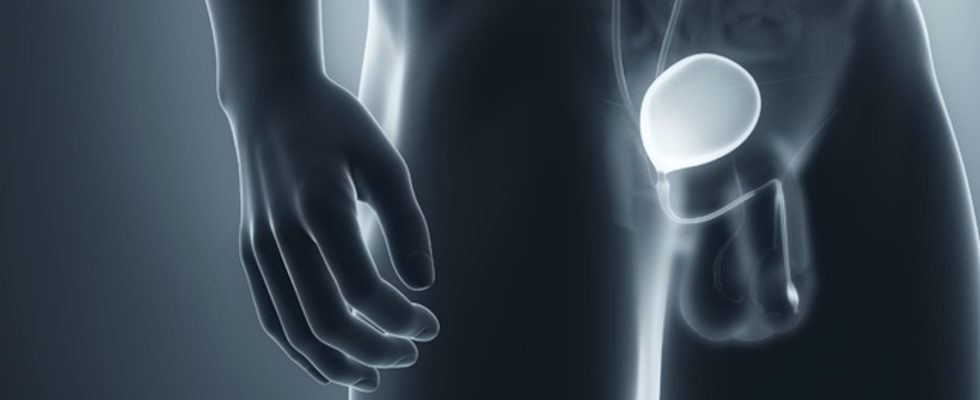A bladder infection is not something to be trifled with. The disease, which affects men less frequently than women, is usually harmless. It’s often just uncomfortable.
A strong urge to urinate, little urine, pain when urinating or blood in the urine – all these symptoms point to cystitis, the medical term for a bladder infection. The bladder infection should urgently be clarified by the doctor. Basically, men suffer about four times less often of cystitis than women: Because the long male urethra ensures that the bacteria do not find their way to the bladder as quickly. The female urethra, on the other hand, is relatively short, so that invading germs can reach the bladder more quickly.
The so-called Escherichia Coli bacteria, which are found in the natural intestinal flora of a person, are to blame for the infection of the bladder and urethra. They only lead to complications if they find their way to the urethra.
“Gateway for bacteria”
In men, however, cystitis often has another cause: “Their bladder almost never becomes inflamed, but almost always the prostate as the organ upstream of the bladder,” explains urologist Dr. Wolfgang Bühmann, who runs his practice on Sylt. The organ, also known as the “prostate gland”, is an ideal “entry port for bacteria”.
Enlarged prostate interferes with the flow of urine
In older men, there is another risk: the prostate enlarges with age, affecting every second man over the age of 50. Due to the enlarged prostate, a narrowing of the urethra takes place, which can lead to the urine no longer being able to flow normally from the bladder and urine residues being left behind. However, if the bladder is not completely emptied, urinary tract infections can occur. The residual urine that remains in the bladder is an ideal breeding ground for bacteria that can cause cystitis.
The enlargement of the prostate itself is not dangerous, but is part of the normal aging process, like “grey hair” and “wrinkles,” says Bühmann. A link between benign prostate enlargement and prostate cancer has not been proven.
Cold in the pelvic area is poison
Factors that promote such inflammation include coldness in the pelvic area, caused by wet swimming trunks, or sitting on a cold bench for a long time. They lead to poor blood circulation in the small pelvis, so that germs can multiply faster and cause an infection.
But also due to a general weakness of the immune system, the urinary bladder can become infected with pathogens more quickly. A weakened immune system as a result of illness or sometimes a urinary catheter can also cause bacteria to penetrate the prostate gland and cause inflammation.
Frequent sexual intercourse is also a potential risk factor: by exchanging bodily fluids, one can become infected with the bacteria more frequently during sex.
pain, fever and chills
Urinary tract infections in men can be much more uncomfortable than in women and are often accompanied by severe pain. In addition to severe burning when urinating, there is often fever, chills and a general feeling of illness often occur in the “stronger” sex.
“This is because it is not the bladder as a ‘hollow organ’ that is inflamed, but the prostate as a ’tissue organ’,” explains Bühmann. “Therefore, the inflammation is more likely to connect to the bloodstream and, in addition to the pain when urinating, leads to the infiltration of germs throughout the body.”
Complicated and lengthy than in women
It can become dangerous if prostate inflammation (prostatitis) is not cured and spreads to the kidneys. In severe cases, even blood poisoning is possible. It is therefore advisable to see a urologist as soon as possible if you experience symptoms such as painful urination and an increased urge to urinate.
If the prostate inflammation is treated, it usually takes a long time seven to ten daysuntil she’s healed. For comparison: A bladder infection in women lasts three to five days on average.

